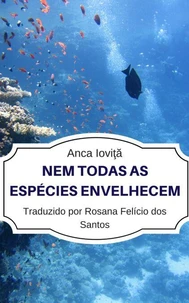During my third year of medical school I stumbled upon an online article about calorie restriction with optimal nutrition. I read about an apparently simple diet intervention that prolonged the average and maximum lifespan of laboratory animals such as yeast, fruit flies, worms and mice. At that time, I wasn't aware that such experiments were already done on non-human primates too. Honestly, I dismissed it as a curiosity, an intervention that could have some effect in simple organisms such as fruit flies, but something which would never work in complex beings like us.
It just seemed too good to be true. Time passed and proved me wrong. Given an early childhood fascination with the limits of life extension, I studied engineering and medicine in an attempt to radically prolong human lifespan. After a short stint of research in neural prosthetics in a German lab, I realized implanting artificial devices into the human body is not a long-term solution. I returned home where I started the medical residency in geriatrics, the branch of medicine specialized in age-associated diseases.
A funny thing happened then. Reading about theories of aging is one thing. Daily caring for people 3-4 times your age is a completely different thing and I started to connect the dots. I noticed some people aged like wine and others aged like vinegar. According to their skinny frames and detailed lifetime stories, it looked like calorie intake had something to do with it. That's how I got started in typing the first words for this book.
You found out about the calorie restriction experiments on many animal species and you wonder whether it would work in humans too. You made up your mind to safely try restricting your daily calories for a possible slowing of aging and a longer lifespan. You understand the importance of getting an appropriate quantity of nutrients, yet you have no idea how to make good choices in food stores and restaurants.
You may have a chronic disease or you may be in a certain stage of your life like childhood, pregnancy, breastfeeding and you wonder whether it is safe to try calorie restriction at all. You are more interested in nutritional principles than in counting calories, vitamins, proteins or in following rigid recipes and set menus. You wonder whether dietary supplements are necessary at all. You wonder whether a magic pill could mimic the effects of calorie restriction.
There is a fine line separating calorie restriction with optimal nutrition from starvation. Don't cross it. Read this book instead. VISIT MY BLOG ATLONGEVITYLETTER. COM AND SIGN UP TO RECEIVE NEW UPDATES ON MY NEXT BOOK COMPARING THE AGING OF SPECIES FROM THE SIMPLEST TO THE MOST COMPLEX
During my third year of medical school I stumbled upon an online article about calorie restriction with optimal nutrition. I read about an apparently simple diet intervention that prolonged the average and maximum lifespan of laboratory animals such as yeast, fruit flies, worms and mice. At that time, I wasn't aware that such experiments were already done on non-human primates too. Honestly, I dismissed it as a curiosity, an intervention that could have some effect in simple organisms such as fruit flies, but something which would never work in complex beings like us.
It just seemed too good to be true. Time passed and proved me wrong. Given an early childhood fascination with the limits of life extension, I studied engineering and medicine in an attempt to radically prolong human lifespan. After a short stint of research in neural prosthetics in a German lab, I realized implanting artificial devices into the human body is not a long-term solution. I returned home where I started the medical residency in geriatrics, the branch of medicine specialized in age-associated diseases.
A funny thing happened then. Reading about theories of aging is one thing. Daily caring for people 3-4 times your age is a completely different thing and I started to connect the dots. I noticed some people aged like wine and others aged like vinegar. According to their skinny frames and detailed lifetime stories, it looked like calorie intake had something to do with it. That's how I got started in typing the first words for this book.
You found out about the calorie restriction experiments on many animal species and you wonder whether it would work in humans too. You made up your mind to safely try restricting your daily calories for a possible slowing of aging and a longer lifespan. You understand the importance of getting an appropriate quantity of nutrients, yet you have no idea how to make good choices in food stores and restaurants.
You may have a chronic disease or you may be in a certain stage of your life like childhood, pregnancy, breastfeeding and you wonder whether it is safe to try calorie restriction at all. You are more interested in nutritional principles than in counting calories, vitamins, proteins or in following rigid recipes and set menus. You wonder whether dietary supplements are necessary at all. You wonder whether a magic pill could mimic the effects of calorie restriction.
There is a fine line separating calorie restriction with optimal nutrition from starvation. Don't cross it. Read this book instead. VISIT MY BLOG ATLONGEVITYLETTER. COM AND SIGN UP TO RECEIVE NEW UPDATES ON MY NEXT BOOK COMPARING THE AGING OF SPECIES FROM THE SIMPLEST TO THE MOST COMPLEX

 , qui est-ce ?
, qui est-ce ?